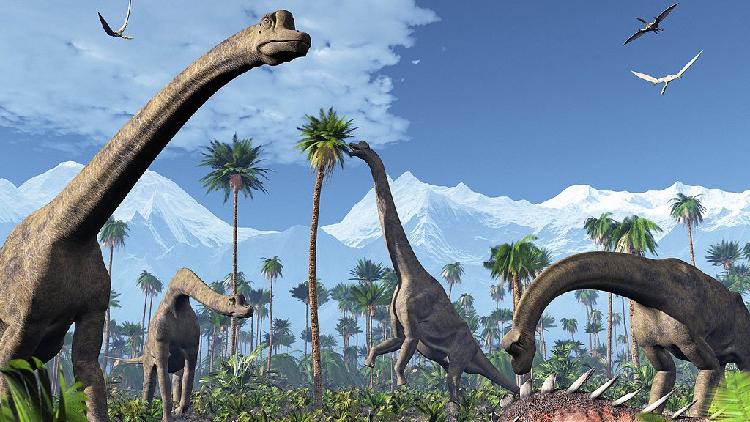Fossilized excrement and regurgitation aid researchers in piecing together dinosaur ascendency
Scientists have utilized fossilized feces and vomit samples from Poland to piece together how dinosaurs came to rule the Earth millions of years ago.

The research team is uncertain whether the dinosaurs' ascendance over a span of 30 million years resulted from chance, capability, environmental shifts, or a mixture of these factors. However, they concluded this important point: "It was not a sudden thing," stated study co-author Martin Qvarnstrom from Uppsala University.
The recent study, released on Wednesday in the journal Nature, involved the examination of numerous dinosaur droppings to shed light on the prehistoric food chain from 200 million years ago.
According to Qvarnstrom, the earliest dinosaurs were opportunistic feeders, consuming whatever was available—including insects, fish, and plants.
When shifts in climate occurred, these creatures adapted swiftly. For instance, herbivorous dinosaurs demonstrated a willingness to eat a wider variety of vegetation than other contemporary plant-eaters, making it easier for them to diversify their diets as wetter conditions produced new plant species.
While the study focused on fossils found in Poland, Qvarnstrom expressed a desire to validate their findings using fossil records from other regions around the globe.
Investigating ancient fecal material is a common practice among scientists seeking insights into bygone species, as noted by Emma Dunne, a paleobiologist at the University of Erlangen-Nuremberg. However, fossilized feces can often appear as unremarkable blobs or rock fragments, and they may not be located in proximity to the remains of the animals that produced them, complicating the task of identifying their origins.
In this particular study, researchers identified fish scales, insect fragments, and bone bits embedded within the droppings.
"They are a really unassuming, quite plain part of the background," remarked Dunne, who did not participate in the current research. "But they hold so much delicate, fine information."
Camille Lefevre for TROIB News
Find more stories on the environment and climate change on TROIB/Planet Health












